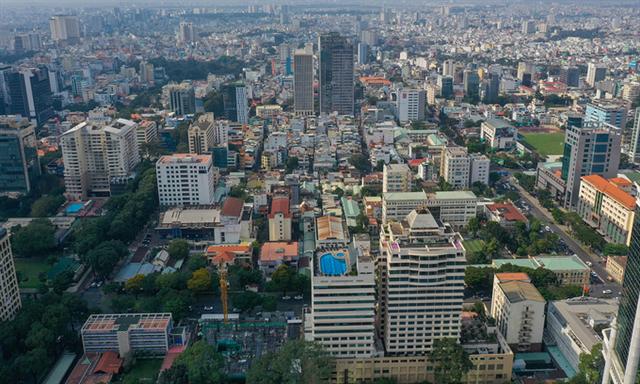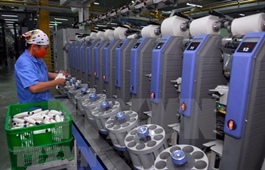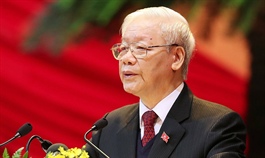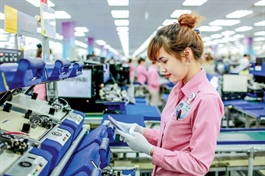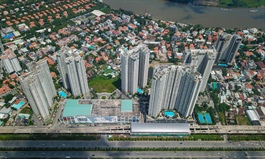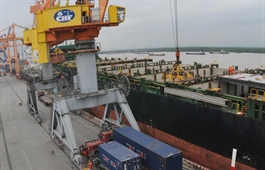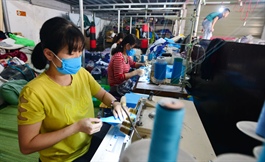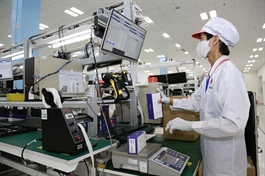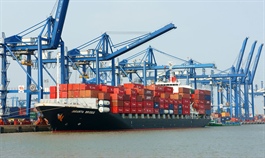HCMC to become smart city by 2025: chairman
HCMC to become smart city by 2025: chairman
HCMC wants to become a smart city by 2025 and remain the country's growth driver, its chairman, Nguyen Thanh Phong, has said.
Ho Chi Minh City is seen from above, January 2021. Photo by VnExpress/Quynh Tran.
|
Speaking to correspondents ahead of the 13th Party Congress which opened in Hanoi on Tuesday, he said by then HCMC authorities also need to turn it into a modern and industrialized city with a per capita income of $8,500.
The city strives to become a Southeast Asian economic, financial and technological hub by 2030 and achieve a per capita income of $13,000, nearly twice the 2019 figure of $6,862.
City authorities set their sights even further and want to make HCMC an Asian economic and financial hub by 2045 with per capita income increasing to $37,000.
The focus of development will be key industries like financial services, banking and tourism.
The city will start implementing a plan to turn into a global financial center, encourage production and export of high-tech products and software and make the most of opportunities thrown up by free trade agreements Vietnam has signed.
A favorable business environment and rapid and steady economic growth are essential conditions for financial centers to thrive.
HCMC has been the country's economic spearhead, contributing 22 percent of GDP and 27 percent of government revenues.
The city expects to retain an increased proportion of its revenues -- 24 percent from 2021 and 28 percent from 2026 -- up from the current 18 percent.
It will focus on training human resources to international standards in eight priority areas: information technology, communications, mechanical engineering, artificial intelligence, corporate governance, finance and banking, healthcare, tourism, and urban management.
Technology and innovation will be the main drivers of socio-economic development with priority given to the use of artificial intelligence and 5G technology. Telecom companies are trialing 5G services at several popular public spots like Nguyen Hue Street in District 1.
The city will seek to improve people's health and quality of life and develop into a specialized medical hub.
It has seen a surge in interest from foreign investors in the last five years thanks to Vietnam’s robust economic growth. HCMC also attracted nearly $4.4 billion worth of FDI last year, or 15 percent of the country’s total.


